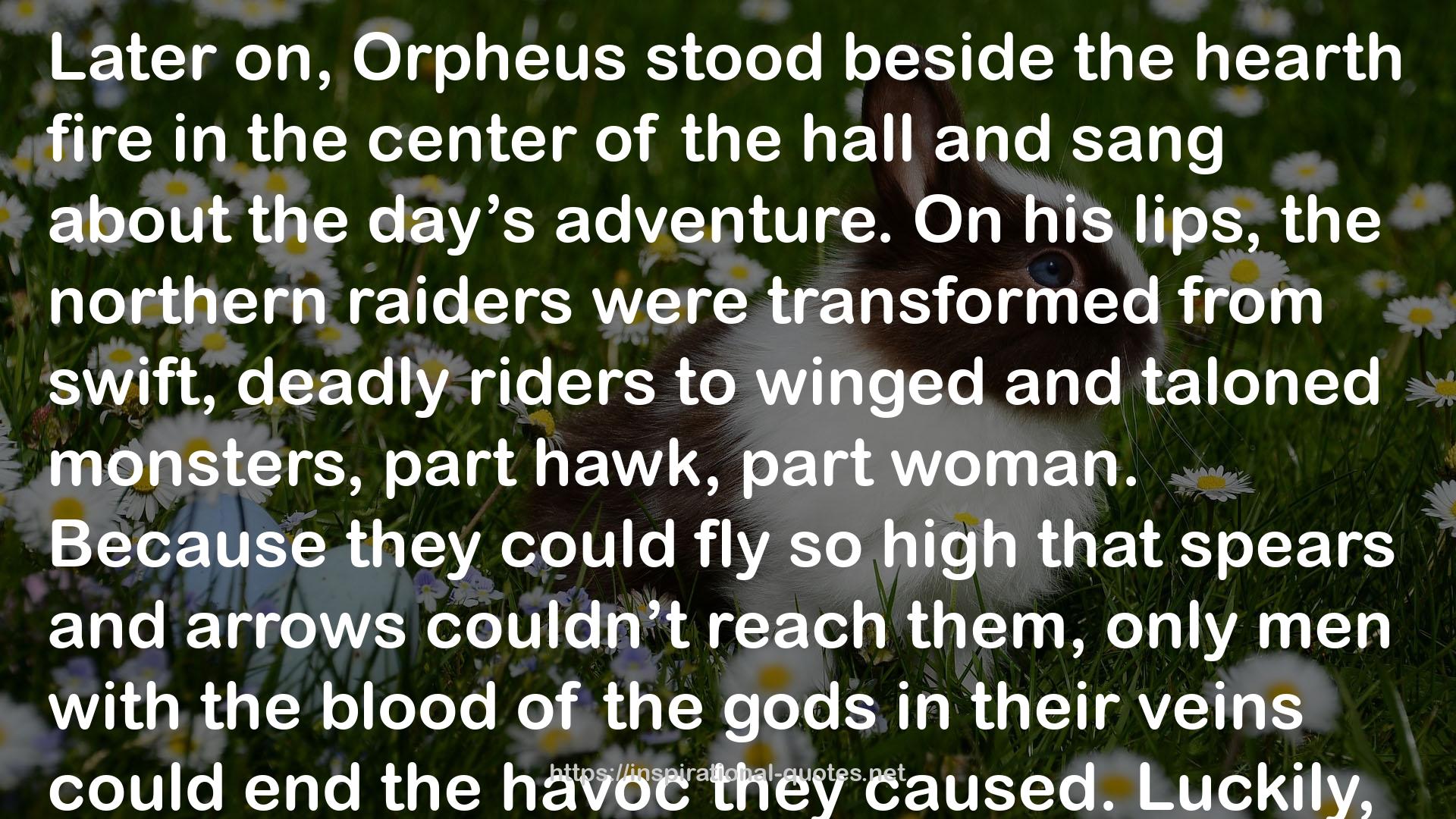" Later on, Orpheus stood beside the hearth fire in the center of the hall and sang about the day’s adventure. On his lips, the northern raiders were transformed from swift, deadly riders to winged and taloned monsters, part hawk, part woman. Because they could fly so high that spears and arrows couldn’t reach them, only men with the blood of the gods in their veins could end the havoc they caused. Luckily, a ship of heroes came ashore to rid the land of the hideous creatures. Zetes and Kalais, the sons of Boreas, had inherited the North Wind’s ability to fly and soon defeated the Harpies. They would trouble good Lord Phineas no more.
Orpheus finished his song, and the men cheered and banged their fists on the tables so loudly that it seemed like they’d bring the roof down in pieces. As for me, I kept my mouth shut and my arms folded. Orpheus noticed my frosty look when he sat back down. “You didn’t like it,” he murmured.
“They deserved better,” I replied stiffly. “They were brave fighters.”
“I thought I made that clear. Just look at Zetes over there, grinning ear to ear in spite of a nasty arrow wound that probably still burns like Hephaestus’s own forge-fires. It might leave him half lame for life, but he won’t mind, because in my song, he owns the sky.”
“You didn’t see the way he fought today,” I shot back. “He’s not worthy to own a mud puddle. They fought well, those women. They were as skilled and courageous as any man, so you turned them into monsters!”
Orpheus was silent for a little while. Then he took a sip of wine and said, “They attacked without warning, they destroyed good ships for the sake of destruction, they violated the sanctity of a sacrifice to the gods, and they would have cut down a blind old man, king or not, if we hadn’t come ashore when we did. I won’t argue with you about their valor or their mastery of weapons and horses, but see them for what they are, lad. You say I’ve made them monsters, yet you’d make them gods. They’re women, human women, as praiseworthy and as flawed as any fighting men I’ve ever known, but plain truth makes a poor song. "
― Esther M. Friesner , Nobody's Prize (Nobody's Princess, #2)
